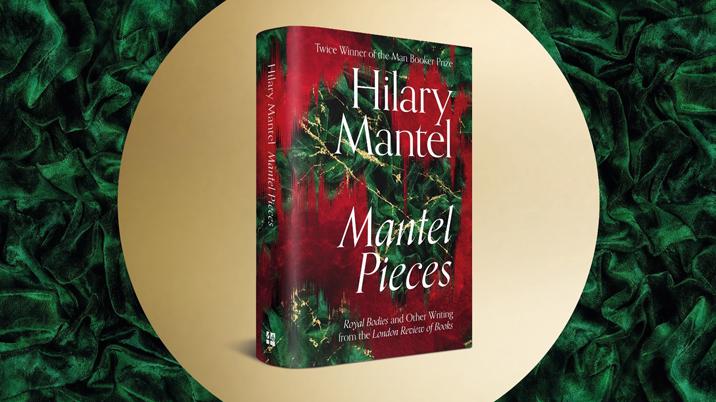
Mantel Pieces, a collection of writing from Hilary Mantel published by Fourth Estate on October 1, is more than a treat for fans of the Booker Prize-winning author of Wolf Hall. It is also the latest chapter in an increasingly successful evergreen content strategy by the owner of the archive from which the new collection has been sourced: London Review of Books.
As well as articles written by Mantel for LRB dating back to the 1980s, the book draws on other related archive documents – including letters exchanged between Mantel and LRB editor Mary-Kay Wilmers, which feature interactions concerning specific pieces as well as discussions about life and writing.

“Given the scale of (Hilary Mantel’s) profile now, and the length of time she has written for us across a broad range of subjects, this is a particularly exciting collection,” Sam Kinchin-Smith, LRB’s head of special projects believes. “(And) as another way into the history of the magazine, seeing how a piece was edited and why it was commissioned is fascinating.”
The collection of Mantel’s writing is one of a growing number of archive-based products developed by LRB as it has stepped up efforts to better capitalise on its archive content in recent months. Already doing good business is a series of books comprising archive LRB journalism grouped by theme. Titles on food, sex and witches currently top this series’ best sellers.
On top of that, it made a conscious decision to feature ‘Collections and Selections’ prominently on the home page of its website, when it was re-launched late last year. The move was intended to make it easier for readers to “rediscover classic pieces, recurring themes and the dash that LRB has cut through the history of ideas” – a way of repositioning archive content as of equal value, rather than subservient, to latest content.
What LRB has learned is that if you take what seems to most people’s eyes ‘old stuff’ and gather it together around a provocative over-arching topic then publish ten articles in a beautiful little book, suddenly there is a new appetite to read that ‘old stuff’ again and see how these ideas and the debate around them has changed over the past four decades.
What lends LRB’s archive to this approach is its editorial agenda. Since launch, it has commissioned and published long-form pieces by leading literary talent not just about books but a wide array of topical, political and economic, social and cultural issues.
“LRB archive’s evergreen quality, if not unique, is quite rare,” Kinchin-Smith says. “But there will be content of enormous value in every publisher’s archive.” If they know where to look and what they are looking for, that is.
There will be content of enormous value in every publisher’s archive.
Adding a digital dimension
Kinchin-Smith joined LRB four years ago, initially as LRB’s digital editor – a curious title for a magazine which, he readily admits, was and remains “quite undigital”. (For which read: a print-first proposition with long-form articles that are nicest to read in print.)
At first, his focus was on aligning digital with LRB’s print publication principles – specifically, its ambition to present exquisitely-written articles as elegantly as possible, that are valued by its loyal readers for their writing, editing, typography and design. Subsequently, digital has become a platform for LRB’s various other activities – including a bookshop and café, podcasts and videos, and a programme of live events (which during the pandemic has evolved into live streaming).
With the switch of attention to using digital as a hub to create connections and enable fluid movement between different LRB products, Kinchin-Smith’s role evolved into head of special projects and a more strategic approach to using the archive came in – fortunately for the business, ahead of the coronavirus pandemic.
With people having more time on their hands due to working from home or being on furlough, readers’ demand for content rose as people had more time to read longer content. Also soon apparent was the considerable appetite not just for content around current events but archive content around related, timeless themes – for example, epidemiology now and in the past.
But there was also significant appetite for content with no pandemic theme – another opportunity for archive content. And this led to LRB launching Diverted Traffic – a daily long-read from the archives which is guaranteed ‘Covid-19-free’. Each edition of the daily email newsletter comprises just one article from the archive available non-paywalled for 24 hours.
Astute management of evergreen content helped LRB subs and web traffic surge in lockdown – in April, it recorded its highest volume of website traffic since December 2015, with web sessions up by 42% and subscriptions up 70%, year-on-year.
Looking back, Kinchin-Smith identifies three important lessons for those now seeking to derive greater value from their archive content.
The first is to guard against being too reactive to current events – catering for those seeking an alternative as a means of escape, for example, as well as those craving the latest in-depth analysis. Second, focus on quality – work hard to edit every piece into the very best version of itself. Third, work hard to review your archive with a fresh pair of eyes.
“There is huge opportunity to find value that many people aren’t using yet,” he says. “Every publisher has the opportunity to be an archive publisher in parallel to constantly putting out new material.”
Focus on quality – work hard to edit every piece into the very best version of itself.

You can hear Sam Kinchin-Smith being interviewed by Ciar Byrne on a recent episode of The InPublishing Podcast, which was sponsored by Acorn Web Offset, the Yorkshire-based specialist A5 and A4 magazine printer.
This article was first published in InPublishing magazine. If you would like to be added to the free mailing list, please register here.












